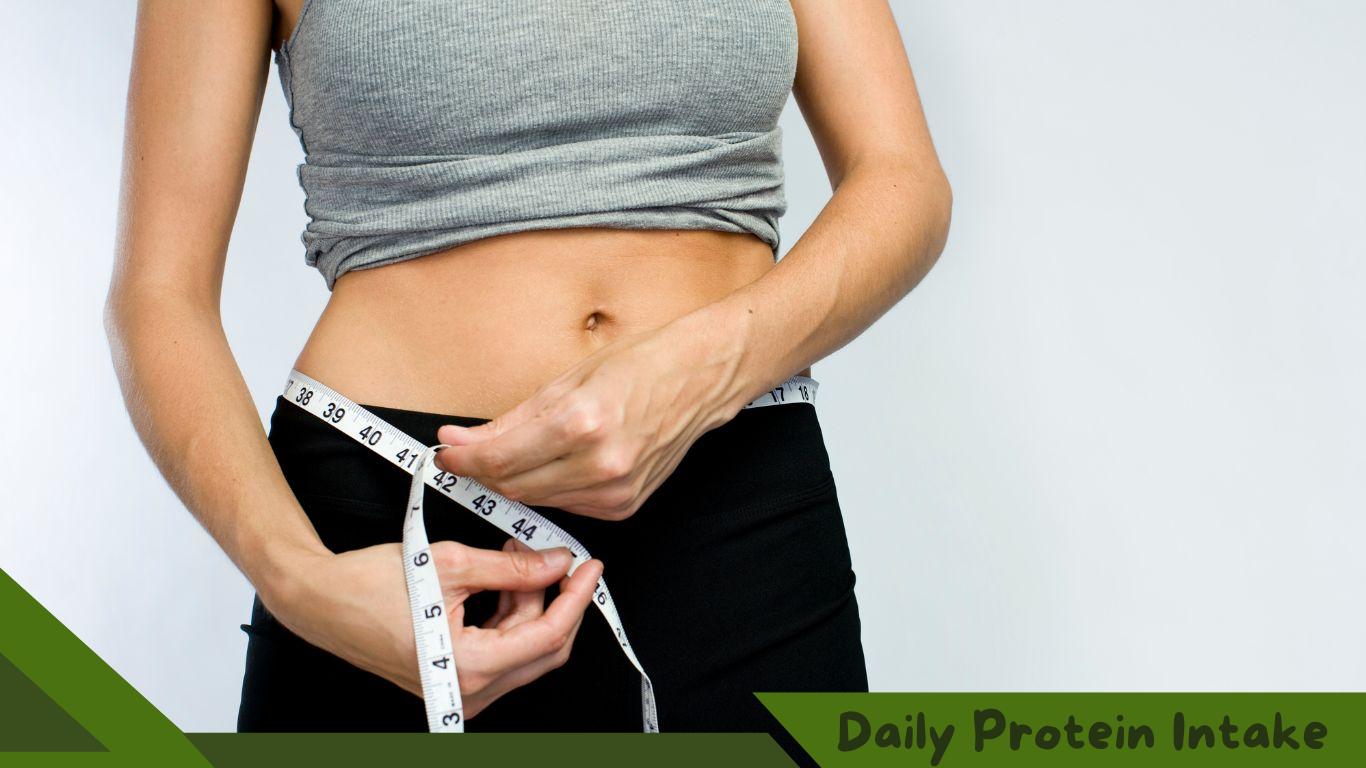How to Calculate Your Protein Intake for Optimal Weight Loss Results

Protein is a necessary nutrient. It helps build and repair tissues and makes important hormones and enzymes. Protein is vital to a healthy diet and can aid in weight loss with proper consumption. We’ll explain how to measure your protein intake for losing weight best.
What is Protein?
Protein is a big nutrient found in lots of foods, like meat, fish, eggs, beans, nuts, and dairy products. Proteins are important for fixing and forming body tissues. They are created by joining small units called amino acids. The body makes some amino acids, but we have to get others from food. There are 20 amino acids in total.
How Much Protein Do You Need?
Your protein needs differ based on your age, gender, weight, and activity level. The Institute of Medicine has set guidelines for how much protein adults need. It’s 0.8 grams per kilogram of body weight per day. But, this is the minimum amount required to avoid protein deficiency. The quantity may not be adequate to achieve optimal health and weight loss goals.
The Benefits of Protein for Weight Loss
Protein can help with weight loss in several ways. Eating protein can make you feel full and satisfied after meals more than carbs or fats. This may help you avoid overeating. Protein has a high thermic effect. This means the body uses up more calories to digest protein than it does with carbs or fats. Protein is important to maintain muscle when losing weight for good metabolism.
How to Calculate Your Protein Needs for Weight Loss
To figure out how much protein you need to lose weight, start by finding out how many calories you need every day. You can use an online calculator or talk to a registered dietitian to do this. To make it easier to know how much protein you need, follow these steps once you know your daily caloric needs.
To figure out how much protein you should eat, multiply your daily calories by 0.30 to 0.40. Then, divide the resulting number by 4 to get the grams of protein you need per day.
If you need 2000 calories a day, you should get 600 to 800 calories from protein (which is 30% to 40% of your daily needs). This translates to 150 to 200 grams of protein per day (600 to 800 calories divided by 4).
| You May Also Like | Maximizing Your Fitness Goals with the Right Protein Intake |
Sources of Protein for Weight Loss
There are many sources of protein that are suitable for weight loss. Here are some examples:
- Lean meats, such as chicken breast, turkey breast, and lean cuts of beef and pork
- Fish, such as salmon, tuna, and tilapia
- Eggs and egg whites
- Dairy products, such as milk, yogurt, and cheese
- Plant-based protein sources, such as beans, lentils, tofu, and tempeh
Tips for Increasing Your Protein Intake
Here are some tips for increasing your protein intake:
- Choose lean protein sources that are low in saturated fat and calories.
- Aim to include protein in every meal and snack.
- Use protein powder supplements, such as whey or soy protein, to increase your protein intake.
- Choose high-protein snacks, such as nuts, seeds, and Greek yogurt, to help you feel full and satisfied between meals.
Conclusion:
To lose weight effectively, you need to measure how much protein you consume. Protein is important for building and repairing tissues. It also helps preserve muscle mass when losing weight. To help you lose weight, this article will show you how much protein you need each day and which foods have the right amount. Just follow these steps!
FAQs:
Q1. Can I consume too much protein?
Eating too much protein can harm your health. It can damage your kidneys, cause dehydration, and make you gain weight. Protein is important but should be eaten in the right amount and with other nutrients.
Q2. Can I still lose weight if I don’t consume enough protein?
Yes, you can still lose weight even if you don’t consume enough protein. Eating enough protein can aid weight loss and boost health.
Q3. Is it safe to use protein powder supplements?
Yes, it is safe to use protein powder supplements in moderation. It’s crucial to pick good supplements and take them with a balanced diet.
Q4. Can vegetarians and vegans consume enough protein for weight loss?
Vegetarians and vegans can eat enough protein to lose weight. They can include plant-based protein sources like beans, lentils, tofu, and tempeh in their diet.
Q5. Can I consume protein before or after exercise?
Consuming protein before or after exercising can aid in muscle recovery and growth. Consuming protein before exercise can also provide energy and enhance performance during exercise.




